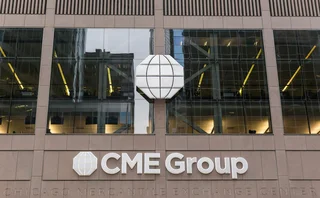
Isda chair on twin threats facing OTC market
Capital a “sword of Damocles”, says Litvack; cleaner CSAs will fix valuation woes

A sword, suspended over a throne by a single horse's hair: as legend has it, this is how the Greek tyrant Dionysius showed a courtier that life as a ruler was haunted by fragility and fear. Derivatives dealers know the feeling, says Eric Litvack, chairman of the International Swaps and Derivatives Association.
"Prudential reforms are a sword of Damocles hanging over the derivatives market and the
Only users who have a paid subscription or are part of a corporate subscription are able to print or copy content.
To access these options, along with all other subscription benefits, please contact info@risk.net or view our subscription options here: http://subscriptions.risk.net/subscribe
You are currently unable to print this content. Please contact info@risk.net to find out more.
You are currently unable to copy this content. Please contact info@risk.net to find out more.
Copyright Infopro Digital Limited. All rights reserved.
As outlined in our terms and conditions, https://www.infopro-digital.com/terms-and-conditions/subscriptions/ (point 2.4), printing is limited to a single copy.
If you would like to purchase additional rights please email info@risk.net
Copyright Infopro Digital Limited. All rights reserved.
You may share this content using our article tools. As outlined in our terms and conditions, https://www.infopro-digital.com/terms-and-conditions/subscriptions/ (clause 2.4), an Authorised User may only make one copy of the materials for their own personal use. You must also comply with the restrictions in clause 2.5.
If you would like to purchase additional rights please email info@risk.net
More on Markets
Broker quoting gap keeps Eurex-LCH basis alive
Lack of differentiated prices helps retain CCP basis
QIS futures debut – but only simple ones for now
Goldman and Societe Generale kick-start Eurex market with equity baskets
Hedge funds trim US swap spreads on tariff decision
Investors cut back asset swap positions as Supreme Court ruling reignites deficit concerns
Opinions split on EU bond balance sheet squeeze
Some say QT and issuance wave will hamper intermediation; others say dealers nimble enough to respond
Eurex looks to shine ‘more light’ on off-book liquidity
Block order book initiative to aid price discovery slated for later this year
CME outage sparks FX soul search
How November’s halt exposed fragile wiring of new futures-led market structure
CME outage exposed FX market’s futures dependency, says SNB
Study finds EUR/USD spreads widened eightfold as non-bank PTFs blew out by nearly 30 times in November halt
CME rankles market data users with licensing changes
Exchange began charging for historically free end-of-day data in 2025








